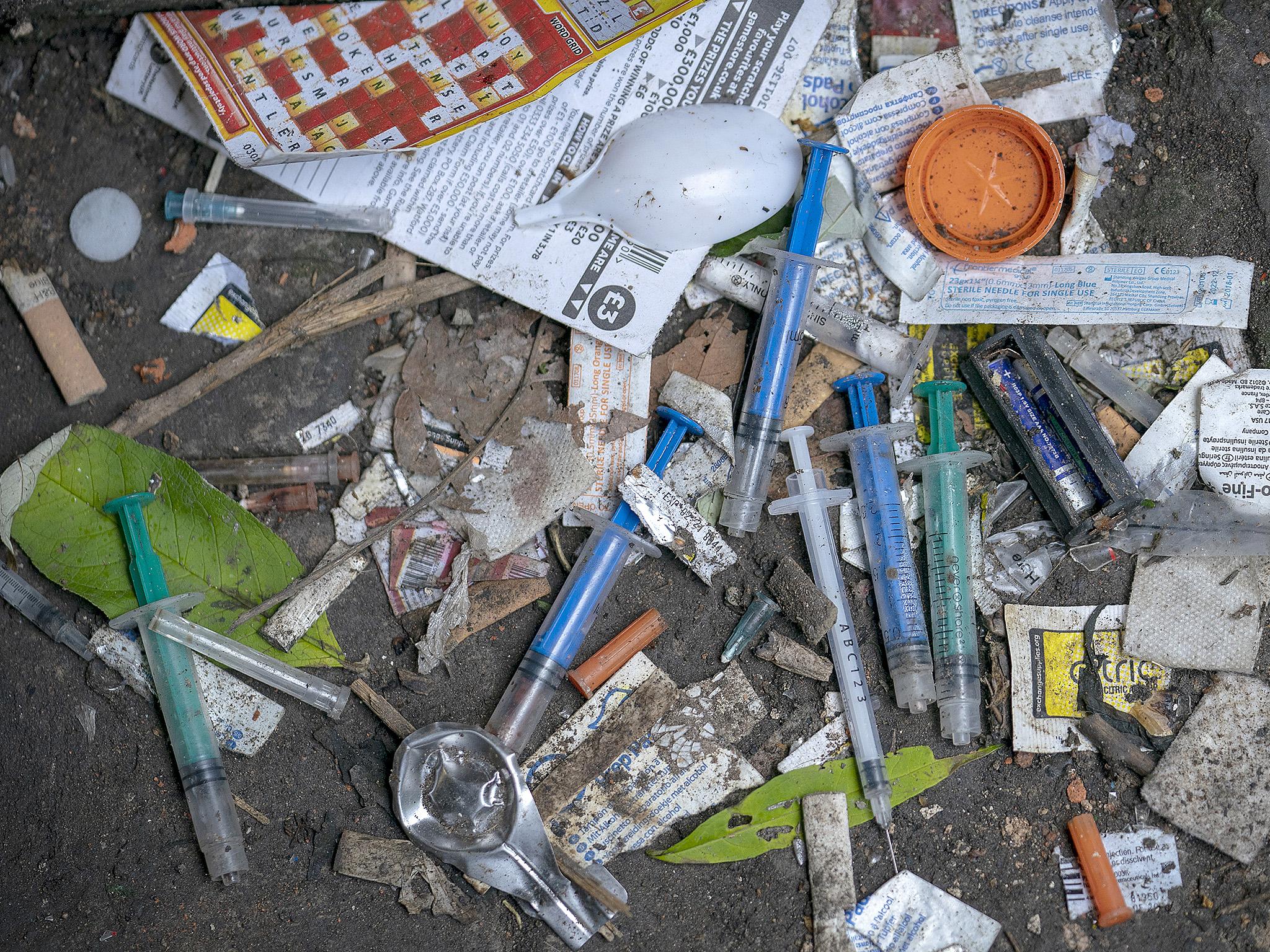Drug deaths in England and Wales at highest level since records began, figures show
Campaigners condemn ‘law-enforcement approach’ taken by ministers to tackle rising drug deaths after figures show around 56 people dying every week from illicit drugs

Drug deaths in England and Wales have hit a record high, with around 56 people now dying every week from illicit substances, new figures show.
Ministers have been accused of “clinging to their failing policies on drugs” after data published by the Office for National Statistics (ONS) revealed there were 4,359 deaths related to drug poisoning last year, the highest number since records began in 1993.
The new figures also mark the highest annual increase, with deaths jumping by 16 per cent between 2017 and 2018. Opiates, such as heroin and morphine, continued to be the most frequently mentioned substance.
Campaigners said the rising rates were “avoidable” and accused ministers of taking an approach that was too focused on law enforcement, while also presiding over cuts to local authority budgets which they said undermined the ability to deliver effective drug treatment services.
The Independent revealed last month that the number of live-in drug and alcohol rehabilitation services in England had fallen by a third in six years, prompting concerns that as budgets fall, councils are sending fewer people to lifesaving residential rehabilitation centres.
The ONS figures show the male drug poisoning rate has significantly increased from 90 per million men in 2017 to 105 in 2018, while the female rate increased for the ninth consecutive year to 48 per million females in 2018. Two-thirds of the recorded deaths were related to drug misuse, accounting for 51 deaths per million people in 2018.
Deaths involving cocaine doubled between 2015 and 2018 to their highest ever level, while the numbers involving new psychoactive substances, formerly known as “legal highs”, returned to their previous levels after halving in 2017. MDMA deaths are now also at their highest rate ever, at 1.5 per million.
Between 2017 and 2018 there were increases in the number of deaths involving a wide range of substances.
The data also shows the northeast had a significantly higher rate of deaths relating to drug misuse than all other English regions, with London having the lowest rate.
Jonathan Ashworth, Labour’s shadow health secretary, said: “It’s clear we are facing an addiction crisis – yet Boris Johnson is pushing ahead with deep cuts to substance misuse and addiction treatment budgets.
“The government’s austerity agenda and shortsightedness in this area is failing some of the most vulnerable in society. Ministers must reverse cuts to addiction services and start treating this issue as the public health emergency it is.”
Liberal Democrat health spokesperson Judith Jolly said that instead of trying to fix the problem the government was “clinging to their failing policies on drugs”.
She added: “Policies that have seen massive cuts to adult drug misuse services, policies that criminalise instead of help people, policies that are directly contributing to this rise in deaths.”
Shirley Cramer CBE, chief executive of the Royal Society for Public Health, said the criminal justice approaches to drug harm had failed, and called for the issue to be treated “first and foremost as a health issue”.
“The case for a more compassionate harm-reduction approach has now been clear for years – and yet the government has continued to lead with tough rhetoric around law enforcement, all the while presiding over sustained cuts to local authority budgets, undermining their ability to deliver effective drug treatment services.”
Mike Dixon, chief executive for drug and alcohol charity Addaction, called for more investment in community outreach services for people struggling with drug addictions.
“Many local services have faced cutbacks, and the reality is that outreach services barely exist anymore,” he said. “We need to go where people are. When we wait for people to come to us, too many of them don’t make it.”
Mr Dixon also called for a national push to promote the overdose reversal drug naloxone, and urged more needed to be done for treatment services to reach out to the growing number of cocaine users.
“These are crisis measures. They are urgent and necessary. But we will only make real progress if we tackle poverty and disadvantage in our communities,” he added.
A government spokesperson said: “Every drug-related death is a tragedy. While drug misuse is at similar levels to a decade ago, we are absolutely committed to reducing it and the harms it causes.
“We have commissioned a major independent review of drugs, which will look at a wide range of issues, including the system of support and enforcement around drug misuse, in order to inform our thinking about what more can be done to tackle harm from drugs. ”
Join our commenting forum
Join thought-provoking conversations, follow other Independent readers and see their replies
Comments
Bookmark popover
Removed from bookmarks